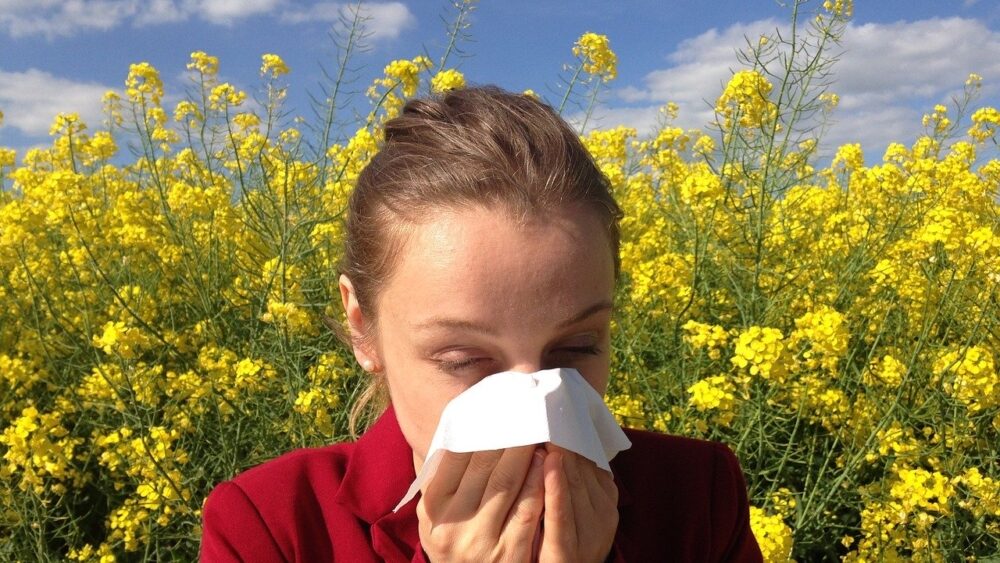This week is Food Allergy Week (May 24 to 30), hosted by Allergy and Anaphylaxis Australia. While this may not feel very relevant to some, for me, it’s an important week.
Three years ago, during my HSC year, I was diagnosed with severe anaphylaxis to nuts after eating cashew and kale chips.
It feels a bit like the whole world is a life or death obstacle course.
In case you aren’t familiar with allergy jargon, anaphylaxis is a severe allergic reaction characterised by the swelling of the throat.
When your throat swells, your organs don’t get enough oxygen and go into shock. As you have probably know or assume, anaphylaxis can be, and sometimes is, fatal.
I grew up complaining about a “weird feeling in my throat” when I ate Nutella and nutty chocolate. I even threw up a few times after eating pesto pasta at a friend’s house.
But I never thought much of it – my skin-prick test said I had a “mild allergy to nuts” and my symptoms never progressed.
So, after many years of mild reactions, severe anaphylaxis was, as you can imagine, very surprising.
It was also horrible. I broke out in hives everywhere, my throat, eyes and lips swelled, I kept falling in and out of consciousness and needed to be given adrenalin twice. I moved between the general observation area of Royal Prince Alfred Hospital’s emergency centre, then into emergency’s resuscitation area, and then into intensive care over the course of just one night.
At school I was never “the anaphylaxis kid” who had their photo up in all the classrooms. I don’t think I’d ever heard of an epi-pen. These days, at 21 years old, I have to always carry two epi-pens with me.
Anaphylaxis governs all areas of my life: eating out; ordering take-away; travelling; going to friends’ houses; going to parties; family lunches; Christmas dinners.
I am at risk every time I eat – a normal, daily reality.
Actually, I’m at risk every time I touch food. Or touch food that has touched other food. It feels a bit like the whole world is a life or death obstacle course.
I’m not the only person who faces these kinds of food challenges, of course. Allergies and anaphylaxis are on a significant incline in Australia.
In fact, an ASCIA study predicts that by 2050, the number of patients affected by allergic diseases in Australia will increase by 70 per cent to 7.7 million. The study also notes that anaphylactic-related hospital admissions have increased four-fold during the past 20 years.
Now, with such scary statistics, and no cure on the horizon, it can be hard to feel hopeful, even for a Christian. So, of course, I have scoured the internet looking for resources.
“God’s glory shines brightly, illuminating his power made perfect in weakness.” – Lauren Bargas
Lauren Bargas, an ACBC certified counsellor with a Master of Arts in Biblical Counselling, conducted her thesis on a biblical response to food allergies.
In her article for the Gospel Coalition, Bargas says physical and spiritual health are intertwined – when the physical body is affected, so is the spirit, and vice versa.
“While food restrictions often entail suffering, they’re good soil for spiritual fruit,” she explains. “Saying no to foods is an opportunity to examine our hearts, learn self-denial, and cultivate contentment.”
Bargas says we can grieve the loss of fully enjoying food with hope, because there is a greater purpose.
“In the trenches of food constraints, God’s glory shines brightly, illuminating his power made perfect in weakness.”
And like Bargas says, while anaphylaxis brings hardship to my life, it also presents an opportunity to learn to trust God.
For me, it is comforting to know that God works all things for good, and even when I’m feeling a bit run down by it all, I can find hope and rest in him.
This week, Allergies and Anaphylaxis Australia will be hosting webinars on food allergy management, as well as sharing new and helpful resources over their social media.
Their aim is to increase awareness around food allergies and the management of them, and I’m hoping that whether you have an allergy, know someone with an allergy, or even just work in hospitality, you might take a moment to read through their resources.
Severe anaphylaxis is hard. But navigating a world that doesn’t understand allergies and anaphylaxis is much harder. Thankfully, I have a creator who does.


